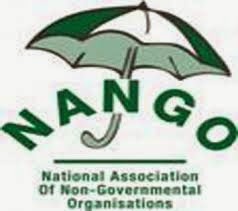
In our last weekly edition we highlighted the 10 Sustainable Development Goals (SDGs) that the Government through the Ministry of Macroeconomic Planning and Investment Promotion, has prioritized for implementation. The justification for prioritizing being that these were found to have a spiral effect of causing progress in the remaining 7 SDGs. It is critical to further deliberate on the methodology, which the country used in determining the 10 as the most important that the country needed to focus on.
By : National Association of Non Governmental Organizations (NANGO)
Firstly, it is critical to note that the Sustainable Development Goals are global goals that the countries worldwide are supposed to customize and develop strategies on, so that come 2030 these goals would have been met.
It is not only the figures that the country should look at, but also the real change that need to be brought about by these global goals. There are fundamental issues that we need to look at as the country lays the foundation for attainment of the SDGs. It is critical from the onset to ensure that No One is Left Behind in the SDGs agenda.
The Leave No One Behind has been popularized in various platforms with the Leave No One Behind fast becoming a movement now. However, there is need to ensure that there is a strategy which has been put in place to ensure that really no one is left behind. There are sectors that traditionally are always left out of the national process and if they are included, their inclusion is usual cosmetic. For instance, What role will children, persons with disabilities, youths, women, minority groups such as the Doma community down in Mbire, informal sector, and many other disenfranchised groups play as SDGs are deliberated and possibly implemented? How will these vulnerable groups be impacted on by the SDGs is very important to be understood and be considered.
Development economists argue that growth of the economy is not sufficient but there is need to ensure that the growth has impacted the lives of the disenfranchised and the poor. The government needed to develop a deliberate framework, which ensure the agenda lead to development outcomes for these without which the process will fall into the same path of the Millennium Development Goals (MDGs). In times of economic challenges it is the vulnerable who are negatively impacted the most. During the era of the MDGs (2000-2015) Zimbabwe went through a prolonged period of economic meltdown which saw Gross Domestic Product (GDP) halve and hyper-inflation reaching 231 million percent by July 2008,and the impact was dire to the vulnerable groups.
It is therefore imperative that during this SDGs era, the government provide a conducive environment, which promotes growth of the economy, with a clear pro poor focus and bias.
Clear prioritization of SDGs, is essential to optimizing development efforts and impacts. The government should ensure that these prioritised SDGs underpin economic success and are backed by progressive, complementary and consistent policies. This is critical in laying the foundations for attaining the SDGs. Such initiatives need to be premised on a sustainable, broad-based, inclusive, pro-poor, and gender-sensitive economy that delivers decent jobs, economic opportunities for citizens to realise their full capabilities. This is central to poverty eradication, food security, empowerment and sustained human development. The effective SDGs framework accompanied by progressive policies would be key to address all the facets of development, including: enlarging the economic cake; equitable re-distribution of the key means of production, inclusive economic transformation and the economic empowerment of indigenous people; governance; and other human rights issues. These are and will always be fundamental in laying an effective framework for SDGs attainment above the prioritisation of the 10 SDGs.
- Chamisa under fire over US$120K donation
- Mavhunga puts DeMbare into Chibuku quarterfinals
- Pension funds bet on Cabora Bassa oilfields
- Councils defy govt fire tender directive
Keep Reading
The National Association of Non Governmental Organisations (NANGO) is the official coordinating umbrella body of Non-governmental Organisations (NGOs) operating in Zimbabwe. Its aim is to strengthen, represent and coordinate the work of NGOs in Zimbabwe by creating space, dialogue and engagement to enable the fulfilment of members’ visions and missions.
For comments and feedback please reach us through: [email protected]











